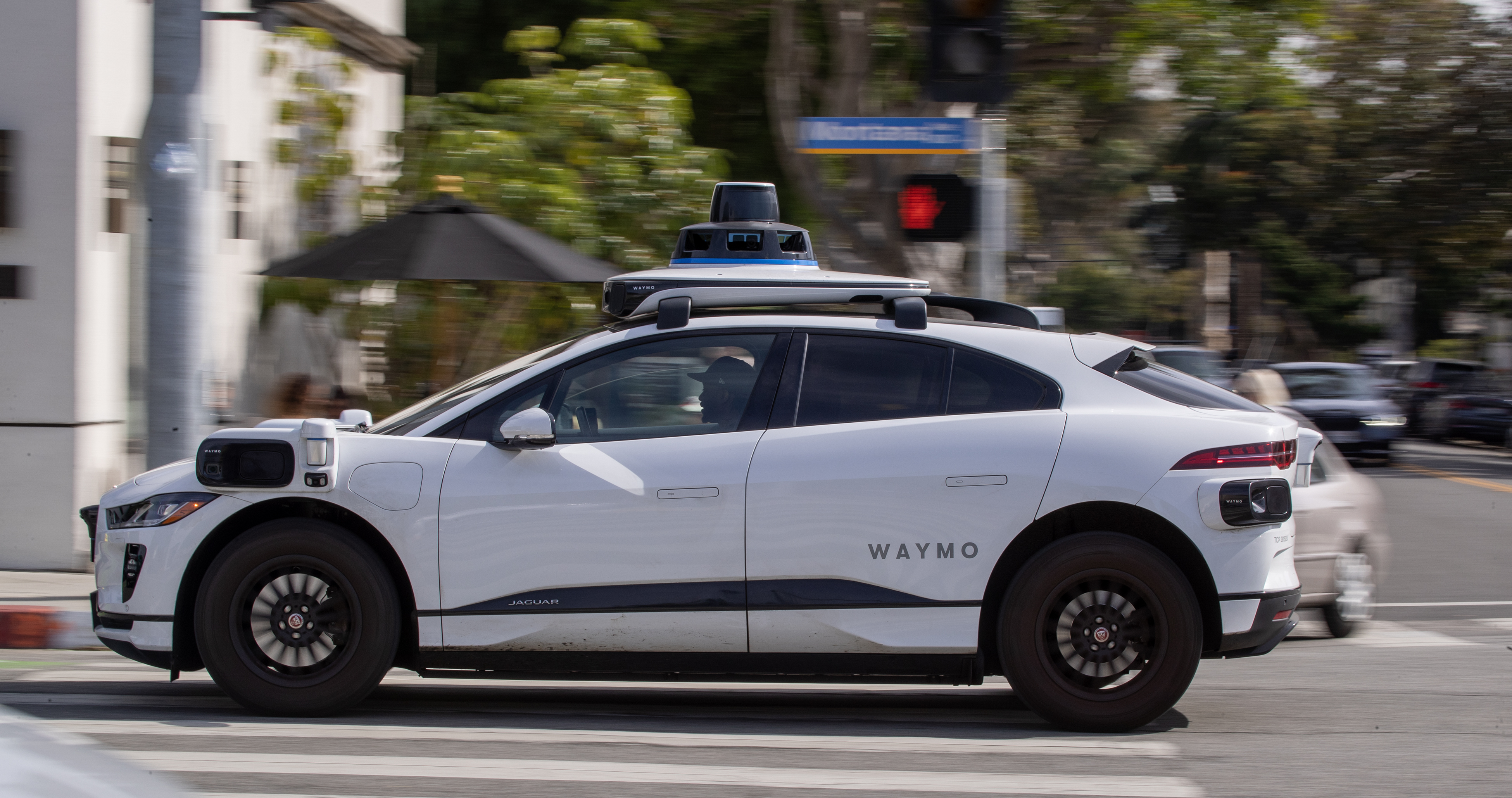Waymo scores a critical robotaxi permit, Fisker cuts more workers and Apple car fades away

TechCrunch Mobility is a weekly newsletter dedicated to all things transportation. Sign up here — just click TechCrunch Mobility — to receive the newsletter every weekend in your inbox. Subscribe for free.
Welcome back to TechCrunch Mobility — your central hub for news and insights on the future of transportation.
I was in Los Angeles earlier this week where I interviewed Waymo co-CEO Tekedra Mawakana onstage at our StrictlyVC LA event. You can watch the whole interview here, which covers her views on the Apple Car project, the company’s “community tour” in Los Angeles, whether Waymo learned anything (or changed) in the wake of the Cruise debacle and if it’s committed to staying in San Francisco even if vandalism of its robotaxis continues.
The following morning (and by total coincidence), the California Public Utilities Commissionapproved Waymo’s application to operate a commercial robotaxi service in Los Angeles, the San Francisco Peninsula and on San Francisco freeways. The approval removes the last barrier for the Alphabet company to charge for rides in these expanded areas. Importantly, it opens up new territory for Waymo in one of the country’s largest cities and unlocks a route to San Francisco International Airport, which is located south of the city.
This week’s news also includes Ford giving its EV owners access to Tesla Superchargers, the Securities and Exchange Commission charging Lordstown Motors with misleading investors, Toyota practically paying people to buy its hydrogen fuel cell-powered Mirai and more!
Let’s go!
A little bird
EV upstart Fisker has been dealing with a lot lately — underperforming its own sales goals, dealing with quality and customer service problems and pivoting from a direct sales model to trying to sign up dealer partners.
This past week the company announced it’s going to cut 15% of its staff as part of that transition and needs more cash to survive. Reuters reported Friday that it’s in talks with Nissan to collaborate on an electric pickup truck, in a move that could save the startup.
A few little birds told us that these talks have been going on for more than a year, and that it wasn’t the only Japanese automaker that has spoken to Fisker about a possible collaboration — Fisker also held talks with Mazda. But Nissan is the last one standing, and its continued interest comes at a crucial moment for the troubled startup.
Got a tip for us? Email Kirsten Korosec at kirsten.korosec@techcrunch.com or Sean O’Kanesean.okane@techcrunch.com. If you prefer to remain anonymous, click here to contact us, which includes SecureDrop (instructions here) and various encrypted messaging apps.
Deal of the week
Polestar has a little more breathing room now that the Swedish EV company — that’s owned by China’s Geely Holdings — secured a $950 million loan from a dozen banks.
Why does it matter? These are critical funds needed to keep Polestar’s EV plans moving forward following Volvo’s decision to pull back its financial support of the electric automaker. The company had about $770 million in cash at the end of 2023, according to regulatory filings.
However, the funding doesn’t solve all of Polestar’s financial woes. Even with this new injection of capital, the company said it will continue to cut costs and look for efficiency, including layoffs. Polestar, which has cut 10% of jobs since mid-2023, said it plans to make another 15% cut this year. The company previously disclosed that 15% job cut, which will affect about 450 people.
Other deals that got my attention …
Range Energy, the startup developing electric-powered trailers for commercial trucking, raised $23.5 million in a funding round led by Trousdale Ventures, with participation from UP.Partners, R7 and Yamaha Motor Ventures. Range has raised $31.5 million to date.
Notable reads and other tidbits
Autonomous vehicles
Goodbye Apple Car; we never knew ya. Yup, that’s right, Apple ended plans to build and sell an autonomous electric car. Don’t worry, months from now we will surely be treated to rumors that it’s back after all. ;D
Reporter Sean O’Kane learned that Apple is likely cutting hundreds of employees from the team and all work on the project has stopped. Some will shift to Apple’s generative AI projects, according to Bloomberg, which first reported the project’s cancellation. Others will have 90 days to find a reassignment to other roles inside the company, or they will be let go. The car project still had around 1,400 employees working on it, according to one employee who was granted anonymity because they were not authorized to speak about their work. Side note: Here’s a timeline of the decade-long project.
GM is squirreling away its custom-built Cruise Origin robotaxis in a defunct Michigan plant.
Motional told employees it will cut about 5% of its workforce (fewer than 70 people), TechCrunch has learned. The cuts mostly affect administrative roles and some employees working in Boston, one of several cities where it tests autonomous vehicles. The other very important detail from sources is that the company needs to secure more funding. That will mean either Hyundai footing the entire bill for the joint venture company it once shared with Aptiv or finding another partner.
Electric vehicles, batteries & charging
Xiaomi showed off its first electric car, the SU7, at Mobile World Congress.
In-car tech
Amazonstopped selling the Ring Car Cam.
This week’s wheels
This week I wasn’t driving; I was riding in a driverless Waymo robotaxi. I’ve taken numerous rides in Waymo robotaxis, but never one in Los Angeles. This trip provided an interesting test piece for how these robotaxis handle unexpected blockades.
Moments after getting into the Waymo, the vehicle was approaching a stop sign when it encountered a minor crash between two human-driven cars. Funny enough, another driverless Waymo was right in front of me. A postal worker, who was also stuck, ended up backing into a turning lane and making a U-turn.
My driverless car stayed put and I began to wonder if it would ever move. A message soon appeared on the touchscreen informing me that “our team is working to get you moving.” A moment later the vehicle reversed a few feet and made the same maneuver the postal worker did. This was likely an incident when remote guidance was provided. About two minutes were added to my ride due to the traffic jam.
We’ll be posting a video of the ride soon!







